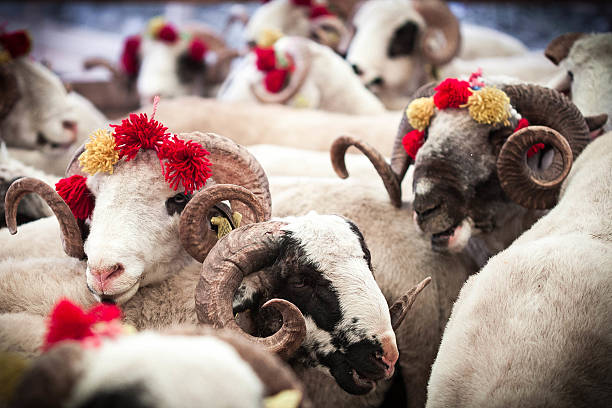30% Drop in Animal Sacrifice Numbers during Eid ul Adha Raises Concerns Compared to Last Year

The recently concluded Eid al-Adha festivities in Pakistan witnessed a significant decline in the number of animals sacrificed compared to the previous year, according to a report released by the Pakistan Tanners Association. The figures reveal a decrease ranging from 28 to 30 percent, highlighting the economic challenges faced by the population.
During the religious festival, a total of 6.36 million animals were sacrificed, including 2 million goats, 3.5 million sheep, 800,000 cows, and 60,000 camels. The decline in sacrificial numbers has raised concerns about the economic implications of this age-old tradition.
The Pakistan Tanners Association has expressed worry over the possible spoilage of approximately 35 percent of the animal hides obtained from the sacrifices. Factors such as heat and load shedding, where power supply interruptions occur, have contributed to this concern. The association fears that these challenges may impact the quality and value of the hides, posing a potential setback for the country’s leather industry.
The decrease in sacrificial numbers can be attributed to the prevailing economic conditions faced by the citizens of Pakistan. The rising cost of purchasing and maintaining sacrificial animals, including expenses for feed and medical care, has become increasingly burdensome for many households. As a result, the economic plight of the population has affected their capacity to fully participate in this religious tradition.
Furthermore, the financial implications of Eid al-Adha sacrifices are substantial. The estimated value of the animals sacrificed during this year’s celebrations amounts to an astounding Rs. 376 billion. This figure highlights the significant economic impact generated by the purchase and utilization of sacrificial animals, which is a vital aspect of the Eid ul Adha festivities.
The act of sacrificing animals during Eid al-Adha holds deep-rooted cultural and religious significance in Pakistan. Throughout various cities, this practice was observed over the three-day festival. It serves as a symbolic tribute to the willingness of Prophet Ibrahim to sacrifice his son as an act of obedience to Allah, and also provides an opportunity for individuals and families to demonstrate generosity by sharing the meat of the sacrificial animals with those in need.
As Pakistan grapples with the economic and environmental challenges associated with the decline in sacrificial numbers, finding a balance between preserving this sacred tradition and addressing these concerns becomes imperative. Effective measures need to be taken to ensure the continuation of this cultural and religious practice while mitigating any adverse effects on the economy and environment.
